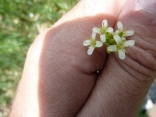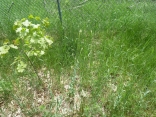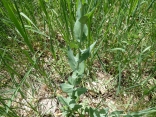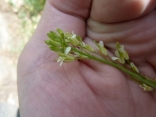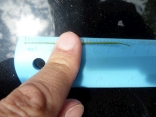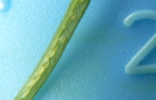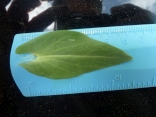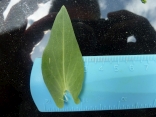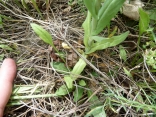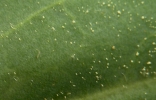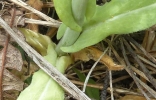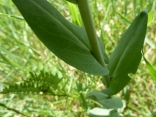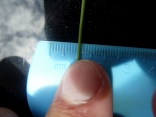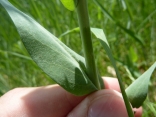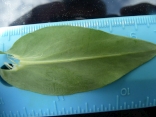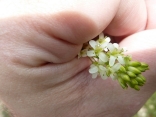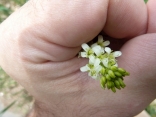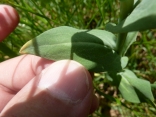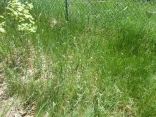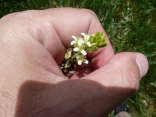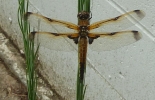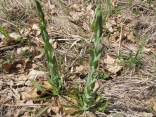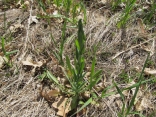I wanted to be certain that this was Tower Mustard, so I first was able to identify it as a mustard -- flowers with four petals and six stamen (four long and two short). Click on the closeup image of the flower below to see the six stamen with curled green tops. Then, using the botanical guide by Arthur Haines, Flora Novae Angliae: A Manual for the Identification of Native and Naturalized Higher Vascular Plants of New England, I was able to divine which of the 42 mustard genuses (in New England) that this plant belongs to:
- Fruit/Seed Pod is a silique (more than 3 times as long as wide).
- Seed pods lacking cross-septa (partitions between the seeds). Inside the pod is not corky or spongy. See closeup image of open seed pod below.
- All leave blades simple, untooth and lacking pronounced lobes.
- Plant partly or entirely with branched hairs. See closeup image of the top of a leaf blade showing tiny, branched hairs.
- Middle stem leaves are clasping the stem.
- Seed pods 0.8 - 1.3 mm wide.
- Seed pods circular in cross-section (not flattened). See closeup of seed pod below. Middle and upper stem leaves glaucous (covered with a whitish or bluish waxy coating). Sepal base without a pouch. Flower petals are supposed to be pale yellow, but most of them look very white.
